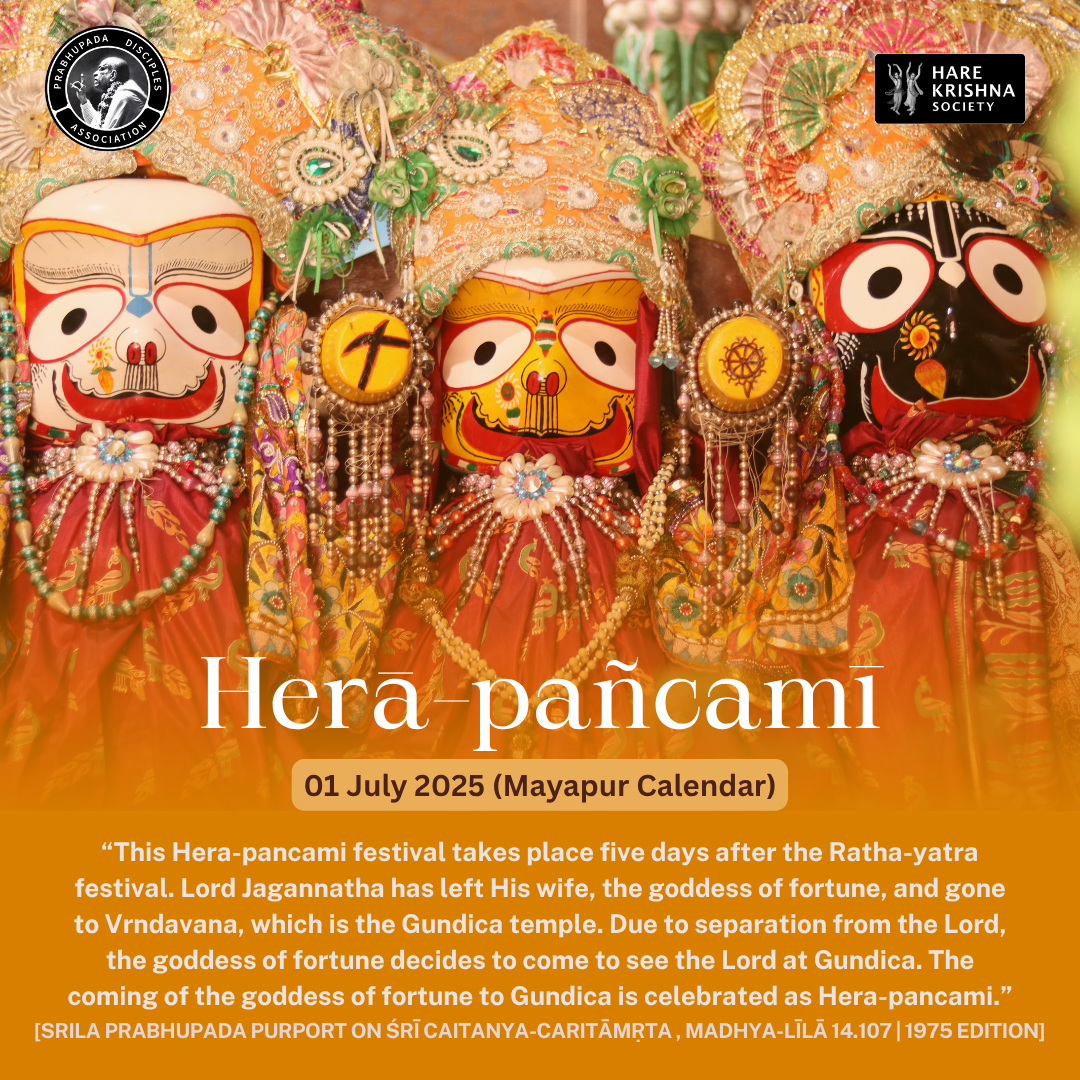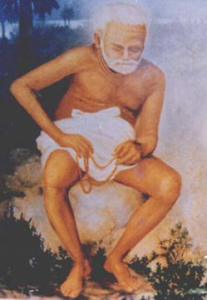Tuesday, 01 July 2025 [Mayapura, West Bengal, India Time]
Hera-panchami (Lakshami-vijaya)

The glories of Herā-pañcamī, also known as Lakṣmī-vijayā, are described by Śrīla Prabhupāda in his Bhaktivedanta Purports to Śrī Caitanya-caritāmṛta » Madhya-līlā 14.107 and 133 (1975 Edition):
“This Herā–pañcamī festival takes place five days after the Ratha–yātrā festival. Lord Jagannātha has left His wife, the goddess of fortune, and gone to Vṛndāvana, which is the Guṇḍicā temple. Due to separation from the Lord, the goddess of fortune decides to come to see the Lord at Guṇḍicā. The coming of the goddess of fortune to Guṇḍicā is celebrated by Herā–pañcamī. Sometimes this is misspelled as Harā–pañcamī in the section known as ativāḍī. The word herā means “to see” and refers to the goddess of fortune going to see Lord Jagannātha. The word pañcamī means “the fifth day” and is used because this takes place on the fifth day of the moon..”
(Śrī Caitanya-caritāmṛta » Madhya-līlā 14.107 » Purport | 1975 Edition)
“When Lord Jagannātha starts His car festival, He gives assurance to the goddess of fortune that He will return the next day. When He does not return, the goddess of fortune, after waiting two or three days, begins to feel that her husband has neglected her. She naturally becomes quite angry. Gorgeously decorating herself and her associates, she comes out of the temple and stands before the main gate. All the principal servants of Lord Jagannātha are then arrested by her maidservants, brought before her and forced to fall down at her lotus feet.”
(Śrī Caitanya-caritāmṛta » Madhya-līlā 14.133 » Purport | 1975 Edition)


